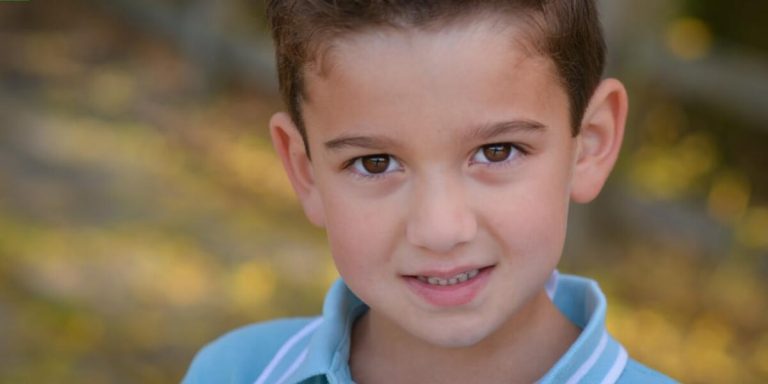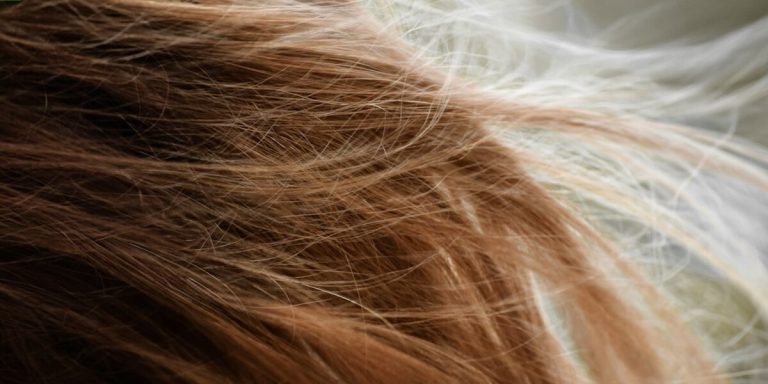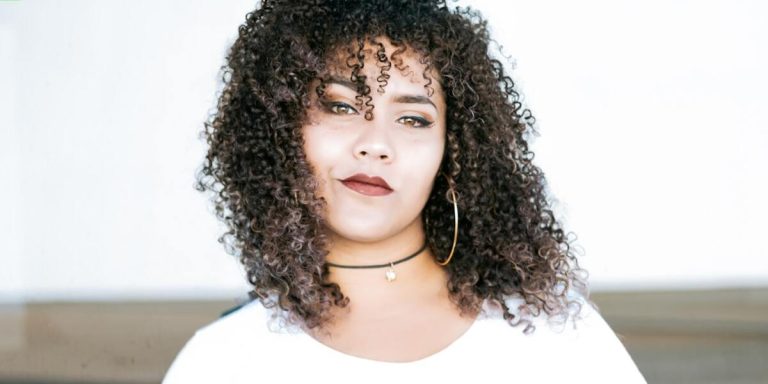Black Female Hair Loss Treatment: Overcoming Challenges with Effective Solutions
Hair loss is a prevalent issue affecting millions worldwide, but when it comes to black female hair loss treatment, the challenge intensifies due to unique hair structure and particular hairstyles. This unusual situation calls for tailored solutions that address the root cause while promoting healthy growth.
Understanding racial disparities in hair care ensures an effective approach towards fighting the often heartbreaking experience of losing hair. By exploring various causes like genetics or specific styling practices common among African American women and presenting scientifically backed methods can illuminate paths toward successful black female hair loss treatment.
Did you know?
A surprising fact is that Central Centrifugal Cicatricial Alopecia (CCCA), a type of scarring alopecia, is the most common cause of hair loss in black women and it’s often overlooked or misdiagnosed.
Understanding Black Female Hair Loss: Causes and Symptoms
For many black women, hair is not just a vanity concern but also an essential part of their identity and culture. Unfortunately, the prevalence of hair loss among this demographic is relatively high due to various factors such as styling practices or genetic predispositions.
Understanding the causes of black female hair loss is the first step towards treating it. The primary culprits typically include:
- Traction Alopecia, which results from consistently pulling at the roots with tight hairstyles, leading to weak strands that eventually fall out.
- Central Centrifugal Cicatricial Alopecia (CCCA), which often involves inflammation and scarring on the crown region of the scalp and is more common among users of chemical relaxers or individuals with a genetic predisposition to follicular damage.
Symptoms vary significantly with these conditions. Sufferers of traction alopecia often notice a receding hairline around the temples or thinning behind the ears over time due to tension from braids, ponytails, and similar styles. In contrast, CCCA may start subtly with slight itching and progress to burning sensations and rapid balding.
Recognizing symptoms early is crucial for effective treatment and limiting permanent hair loss. Detecting symptoms early ensures that treatments can start effectively while reducing permanent damage.
Identifying Common Triggers for Hair Loss in Black Women
While hair loss is a concern shared by many, both men and women alike, it seems to pose an exceptional challenge for black women. It’s important to understand the common triggers that contribute specifically to hair loss in black females.
Traction Alopecia is another prevalent trigger seen especially among Black Women due to certain hairstyles like braids and weaves causing prolonged tension at the root of tresses – resulting inevitably in hair breakage.
Similarity, chemical Relaxers used excessively over time have also been noted posing serious threats leading up-to severe scalp damage promoting premature balding along rested edges commonly termed “Edge Loss”. These relaxers interfere with the natural texture forcing straight patterns which can weaken follicular roots if not rightly managed.
Additionally stress plays a vital role affecting overall health which reflected via deteriorating hair quality ultimately triggering hair fall situations.
Poor diet is further connected activating this unwanted occurrence; lack of essential nutrients such iron deficiency could lead heightened falling strands constricting growth rate provoking considerable volume depletion concerns.
Recognizing Early Signs of Alopecia in African American Females
The journey to identifying and understanding hair loss in black females often begins with an early sign – Alopecia. Alopecia, a condition characterized by the thinning or absence of hair, is a crucial indicator that something isn’t quite right.
Look out for these vital signs for early detection and successful treatment:
1. Thinning Hair: This is one of the most common symptoms associated with alopecia in African American women. You may notice your hair slowly losing its volume over time or areas where it’s less dense than others.
2. Patchy Bald Spots: If you begin seeing circular bald spots on your scalp or patches where there’s no growth at all, these could point towards alopecia.
3. Excessive Hair Breakage/Shedding: An unusually large amount of hair found on brushes/combs or scattered around can signify impending problems too.
4.Root pain/Itchiness/Soreness/Redness/Dry Scalp: A common experience among many victims before significant amounts drop off.
One thing to understand about female pattern baldness (Alopecia) – especially concerning black females- is each symptom might manifest differently depending on individual genetics and lifestyle factors such as dieting habits & stress levels amongst other things which we’ll examine later .
So if you suspect anything along those lines related to sudden changes within your mane don’t sweep them under carpet . It might just save our crowning glory from further damage!
Comprehensive Guide to Black Female Hair Regrowth Strategies
Hair loss continues to be a prevalent issue among black females, and it’s crucial that we address it with the attention, understanding and respect it deserves. The main focus of this comprehensive guide is on hair regrowth strategies specially tailored for black women who may be experiencing hair loss. It seeks not only to inform but also empower you in your quest to regain control over your personal self-image as you navigate through various treatment options.
Recent years have brought significant advancements in treating female pattern baldness, thanks to continuous scientific research and technological innovations in cosmetic dermatology. These developments ushered in an era of viable solutions tailored to address the unique challenges African-American women face with conditions like traction alopecia or central centrifugal cicatricial alopecia (CCCA), which are most common among this group.
Understanding the causes of hair loss events, both genetically and environmentally, is the first step to finding the right strategy. It’s also important to recognize that hairstyles applying excessive tension to delicate roots can be an issue in certain demographics. From there, you can choose between:
- Medical treatments that include FDA-approved medications like minoxidil
- Natural alternatives designed to improve scalp health with herbal remedies high in essential nutrients vital for follicle function
Exploring Medical Treatments Tailored for Afro-Textured Hair
In navigating the journey to hair regrowth, Afro-textured hair often presents its unique challenges. However, not all is lost as medical advancements have seen tailor-made treatments increasing in popularity and success rates.
One of these novel treatment options is Platelet-Rich Plasma (PRP) therapy. Eminent for its efficacy in sports medicine, PRP has gained traction in dermatology owing to its healing properties. In this procedure, a sample of your blood gets processed to isolate platelets that are then injected into your scalp’s affected areas.
These injections stimulate natural hair growth by improving blood supply at the follicular level – an aspect particularly beneficial for black female hair loss treatment.
Laser Therapy or Low-Level Laser Treatment (LLLT) also stands out as another technological breakthrough suitable for treating baldness patterns distinctive among African American women. This non-invasive method employs light energy directly on the scalp cells stimulating cell activity and promoting healthier strands of curl.
Spironolactone pills present yet another effective examen when considering internal therapies specifically focused on hormonal imbalance related issues – quite prevalent amongst black females struggling with thinning patches due to Polycystic Ovary Syndrome or menopausal changes.
However prudence prevails; even though many such methods may seem promising they do come with potential side effects like temporary swelling from PRP sessions or slight fatigue post Spironolactone initiation which should always be discussed with healthcare providers before embarking upon any form of therapy ensuring safe passages towards dense manes!
Natural Remedies and Their Efficacy in Promoting Hair Health
In the quest for effective black female hair loss treatment, natural remedies have grown in popularity due to their affordability and minimal side effects. Here are some notable options that have proven useful in promoting hair health.
Aloe Vera is well-known for its healing properties; applying it to your scalp can help soothe irritation and eliminate dandruff. It also helps reduce sebum or oil buildup, which can block pores preventing healthy hair growth.
Onion juice may not be everyone’s first choice due to its pungent smell, but it has shown significant results when used regularly. The sulfur content aids with blood circulation in the scalp while reducing inflammation and regenerating follicles leading to healthier strands.
Coconut milk contains valuable vitamins like niacin and folate which improve circulation of blood on the scalp while providing nutrients directly needed by the cells growing new hair leaving your tresses lush and shiny.
Fenugreek seeds pack a punch as they possess hormones known for enhancing hair growth thus helpful among women undergoing thinning of hairs phenomenon. By creating a paste from these seeds you’re investing into an organic remedy promising impressive outcomes over time.
Products containing rosemary essential oil are perfect if you crave thicker locks because this plant extract increases cellular metabolism resulting in accelerated growth rates yielding sleeker fuller hairstyles matching every fashion trend 2023 offers!.
Lifestyle Adjustments to Combat Hair Loss in Black Women
Lifestyle adjustments can have a profound impact on alleviating hair loss in black women. A significant part of this approach revolves around maintaining overall health and well-being, which has a direct correlation with the vitality and growth of your locks. Adequate nutrition like taking diets rich in iron, zinc, protein and vitamins particularly B12 often aids healthy hair follicles.
Stress management is another pivotal aspect to focus upon for black female hair loss treatment. With an increasingly stressful lifestyle prevalent in 2023, it’s more essential than ever to incorporate mindfulness exercises such as meditation or yoga into our daily routines as high stress levels may exacerbate scalp conditions leading to further thinning or shedding.
It’s also incredibly beneficial for black women battling hair loss to employ gentle hairstyling practices that reduce tension on roots – avoidance of tight hairstyles (like ponytails), minimizing heat styling tools can go miles toward preventing breakage and preserving strength.
Regular physical exercise boosts circulation ensuring better nutrient supply to the scalp thus promoting healthier strands over time. Similarly staying hydrated keeps dehydration-related dryness at bay while limiting alcohol intake prevents its detrimental effects on keratin production- an integral component imparting strength & resilience against damage onto your tresses.
Each of these aforementioned measures symbolize accessible yet effective steps towards attaining luscious mane thereby underlining their importance within any comprehensive blueprint for addressing Black Female Hair Loss Treatment comprehensively.
The Role of Diet and Nutrition in Maintaining Scalp Health
The correlation between diet, nutrition and scalp health is significant when it comes to black female hair loss treatment. Consuming the right nutrients can promote a healthy scalp environment that encourages stronger hair growth.
Firstly, water constitutes the major part of our body including our hair strands; thus staying hydrated promotes healthier skin thereby benefiting your locks too. Drinking an adequate amount of water daily helps stimulate circulation which is beneficial for your scalp health and promoting robust follicles.
Fruits like oranges and strawberries rich in Vitamin C are beneficial since they assist collagen production – a necessary element for strengthening capillaries supplying nourishment to each shaft on your head. Similarly, leafy vegetables such as spinach contain iron which feeds oxygen-carrying protein hemoglobin in bloodstream aiding vigorous follicle functionings – boosting their vitality leading to less shedding or breakage issues.
Don’t forget omega-3 fatty acids found primarily in fish like salmon or mackerel which keep you flake-free by hydrating from within preventing dryness related troubles intensifying further damage risks over time.
Stress Management Techniques That Can Help Reduce Alopecia
Millions of black women face the challenge of hair loss, commonly referred to as alopecia. However, adopting specific stress management techniques can significantly reduce its occurrence and present an effective black female hair loss treatment strategy.
Firstly, focusing on self-care is not a luxury but should be seen as a necessity for both physical health and mental wellbeing. Establishing regular sleep patterns, maintaining a balanced diet heavy in vitamins like B12 and D which are vital for healthy hair growth or devotion to hobbies that bring joy help reduce overall stress levels.
Regular exercise supports overall body functioning by improving blood circulation essential for nourishing your scalp cells promoting healthier hair growth.
Including activities such as yoga or meditation daily can make significant improvements in managing stress-induced alopecia.
Practicing mindfulness enhances emotional regulation resulting in reduced anxiety levels. Techniques include deep breathing exercises, guided imagery where you visualize peaceful environments or progressive muscle relaxation which involves tensing then releasing each muscle group.
Conclusion
In summarizing, there’s often a sense of overwhelming confusion when dealing with black female hair loss treatment. But rest assured, it is not an unbeatable feat. Every obstacle carries its own set of solutions— you just need to find the one that gels perfectly with your individual needs and lifestyle.
Feel enthusiastic about exploring more? Our website awaits you with open arms! Dive into our vast repository on ‘Hair Loss Treatments’, packed full of tips, insights and effective guidance for various types and stages.
Knowledge after all is power – arm yourself today against hair loss challenges tomorrow!







